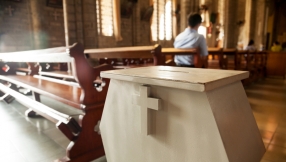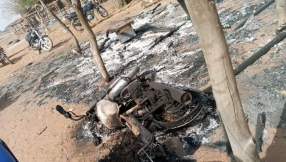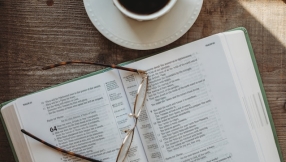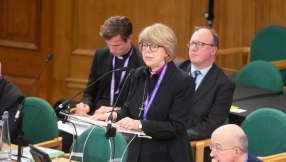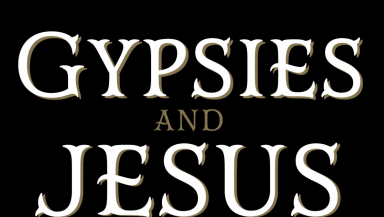
For many people growing up in the UK, what they know about the Gypsy, Roma and Traveller (GRT) community has come through reality TV shows like "My Big Fat Gypsy Wedding".
But for Dr Steven Horne - the first Romany from the UK to be awarded a PhD in theology - this representation couldn't be further from the reality of what GRT life and culture looks like.
And the misrepresentation doesn't stop with popular culture; it exists within the Church too, with the GRT community often seen as a people in need of salvation despite the fact that they are deeply religious, with a large proportion identifying as Christian.
It is this strong faith and religious identity that Dr Horne draws out in his new book, "Gypsies and Jesus: A Traveller Theology".
He speaks to Christian Today about what that Traveller theology looks like and why it is so important to give the reins of Gypsy-Christian identity to Gypsies themselves.
CT: What prompted you to write this book?
Steven: I spent about five years doing my PhD and during that time I did some lecturing and teaching on equality. They had never had anyone speak to them before from the Traveller community and so my original book was a teacher's guide. There is a lot of misinformation about Gypsies and Travellers, with helpful information often being shadowed by sensationalist media. A generation of people have been educated on GRT by programmes like "My Big Fat Gypsy Wedding", which bears so little resemblance to actual Gypsy and Traveller culture it's unbelievable, so I've spent a lot of time undoing a lot of misinformation. The new book is not only a theological book that Christians can enjoy but it's also suitable for people who just want to be informed about Gypsy, Traveller and Roma communities.
CT: You write in your book that until now GRT theology has been dominated by non-GRT voices. Why is it so important to correct that?
Steven: Most of what's ever been written or said about Gypsies and Travellers has been written by non-Gypsies. However, it's crucial that the GRT experience is predominantly told by GRT people themselves. It needs that authenticity and we wouldn't have it any other way with other people groups.
There has always been a Traveller theology but GRT communities are oral and so information, traditions and the Christian faith have been passed down not through writings but through oral means. There are a few small snippets here and there by Gypsies and Travellers themselves but they are quite scarce and scant, and tend to be local productions particular to that local context. This book is bucking that trend.
CT: How religious would you say the GRT community is?
Steven: Religion of some description has been part of Gypsy and Traveller communities from the very beginning. Going back hundreds of years it was used as a way of blending in with other communities, towns and cultures so that they could get safe passage. The Roma people were a diaspora who came from India because of civil war and went through the Middle East, to Greece and up through Europe. It's almost an identical trail to what we have seen with the refugee crisis from Syria. Blending in with the locals and adopting the local religion was a way for people to survive. Around 700 years ago, when they arrived in Europe, that local religion was Christianity.
Statistically, around 85 per cent of GRT people would profess to be religious, with the overwhelming majority of them being Christian. There's a small pocket of Roma in Eastern Europe who identify as Muslim but they make up less than one per cent of all Roma around the world. Certainly within the UK, around 85 per cent would say they are Christian, and perhaps 6 per cent would say they are agnostic or have a belief in God but don't necessarily identify as Christian. So there is a strong religious identity.
CT: You write in your book that GRT Christianity is "not always the exotic spectacle that some may perceive it as being". How would you describe GRT Christianity?
Steven: I grew up in two different communities - Gypsy and non-Gypsy. The one real bridge between the two, the place where there was one real commonality, was Christianity. The Gypsy communities in the UK at least tend to be very evangelical or Pentecostal. That ties into what I was saying about the historical tradition of adopting the local religion. What we see within England unsurprisingly is that the vast majority would identify as Church of England. When you go to Ireland, many identify as Catholic. There tends to be an adherence to the dominant Church or religious presence within that area, but it tends to be overwhelmingly Christian.
What makes Gypsy Christianity distinct is the way in which it is lived out. For some Christians, their Christianity might start and end with the church service on Sunday and perhaps small group during the week. But in the GRT community, their Christianity permeates places that it wouldn't necessarily in non-GRT communities.
If you think of certain practices, like the signing of the cross for example, this might be a normal part of a church service but if you removed it from that context, it would almost be seen as superstitious. But one member of the GRT community I spent time with had a rosary hanging next to his door and every time he left the house, he would touch it, make the sign of the cross and say a short prayer with the same words every time. Then when he got into his van, he had another rosary and would do the same thing. And he did this day in, day out. When I asked him why, he said he was asking to be kept safe and get more work in. It's as if this daily ritual became his liturgy and his sacraments.
CT: Are there any other distinctive features?
Steven: The concepts of purity and separation are very strong within the Gypsy and Traveller communities. We see that in the way they keep themselves separate from the larger settled community and that can be because they see the settled community as impure because they might, for example, have sex before marriage.
There can be exceptions but if you go to most Gypsy Traveller weddings, more often than not you will see all the ladies to one side and all the men to the other. One young Traveller boy I knew became upset at school one day because he had forgotten his PE shorts and was told to go and get a pair from the lost property. He just couldn't do it because he felt so ashamed and that's because they would have been seen as contaminated because they had been worn by a non-Traveller.
The irony in GRT people being called dirty is that this couldn't be more of an insult to Gypsies and Travellers because they see it the other way around!
But there's also a strong sense of movement - what I call 'permanent impermanence', or the idea that life is a journey that we make our way through and there are different 'stations' that we all pass through, whether it's births, adolescence, marriage or death.
For GRT communities the celebrations are always religious in nature. And Gypsy and Traveller funerals are enormous occasions that aren't seen as the final stop but rather tie in with the Christian idea of going on to another place. There is that language of movement where death is not an end but the continuation of a journey.
CT: You mentioned that GRT can be viewed as impure by settled communities, while GRT can vice versa view them as not being pure. Does this suspicion exist with GRT Christians towards non-GRT Christians?
Steven: No and that's actually where there's real common ground. If you take for example the annual Appleby Horse Fair, there is a strong Christian presence among the exhibitors and many of the different denominations have a stand there. The gentleman who runs the fair is a born again Christian and gives Christians pride of place.
In terms of the Church more widely, there was some separation back in the 80s, when Gypsy-led churches started springing up. They started forming their own strong identity and withdrew from other churches. But as more GRT started to become practising Christians, they joined non-GRT congregations across the land.
You might feel like you've only ever met a handful of Gypsy Travellers in your life but I guarantee you've met many more than that and just never knew it because the vast majority go completely unnoticed. They're not going around wearing a badge saying 'Hello, I'm a Gypsy'. They're a bit under the radar and in terms of Christianity, many have integrated with non-GRT churches. There is still a relatively strong Gypsy church presence but the majority are not going to a GRT church.
CT: In your book you speak about how GRT communities have traditionally been seen by settled people as "more sinful". How does that feel?
Steven: It's something that GRT people have had to deal with literally from the beginning of their history, from the genesis point of them becoming a people group as they were ostracised in their own country. We see the same attitude today towards migrants making the treacherous journey across the Channel and the harsh reception they have had from the media and people within our communities. That is how Gypsies and Travellers were viewed as they made their way through Europe.
In Britain it was no different. Within 20 years of arriving, Henry VIII brought in the Egyptians Act 1530 which outlawed being a Gypsy. Within 30 years of that, there was capital punishment for being a Gypsy. From day one, Gypsies and Travellers have been on the sharp end of the stick and this has undoubtedly shaped the community. What it's done for many is ingrained a strong suspicion of outsiders and a very strong defence mechanism.
GRT make up less than 0.2% of the population of the UK but over 10% of prisoner numbers in this country, which is horrendous and indicative of prejudicial treatment of GRT through the judicial process. And the new the Police, Crime, Sentencing and Courts Act 2022 which just came into force at the end of June - ironically during Gypsy, Roma and Traveller History Month - is a very dark day in GRT history. It is one of the most restrictive laws in this country in hundreds of years and makes it illegal to stop anywhere for any length of time and can result in arrest and your vehicles being taken.
CT: How does that collective experience of misrepresentation, rejection and suffering shape GRT theology?
Steven: It's almost a question of why does God allow suffering in this world? And why do GRT continue to allow themselves to be in that position? The conclusion I've come to is that the suffering is to some degrees noble and intentional, like building up callouses through lifting weights. You go through pain because it brings you closer to your objective. If you want to lift up heavier weights, you have to go through the pain of developing the muscle.
How do Gypsies and Travellers make sense of that suffering? It goes back to the suffering Christ. They do that by placing themselves at Christ's feet at the cross, at the peak of his Passion suffering. It's the very worst time and yet at that very same point, you're closer to God than you'll ever be.
We're told to pick up our cross each day, to pick up that suffering. To leave that and choose the easy option, perhaps that's not our calling or even the calling of an entire people. The disciples gave up everything to follow Christ. We're called to run as if to win the race, not sit on a park bench. It's not that we want to suffer but that we suffer for the right purpose and if Christ's given us a new identity, then we can suffer for a little. There's a reverence behind this and that ties into the purity aspect I was talking about - when we're closer to God, quite often that comes with suffering.
CT: How frustrating is it for the GRT community to often be seen as a target of evangelism when they themselves are very Christian?
Steven: With this book, I'm hoping to almost press the reset button on the Church's relationship to the GRT community.
It goes back to the 1800s when mass education was expanding. The government wasn't sure what to do with the "heathen" Gypsies and Travellers so they passed the responsibility to the Church because at this time the Church was running schools for the masses. The Church - particularly the Church of England and The Salvation Army - started doing an extra outreach mission to evangelise the heathen vagrants and 'Egyptians'.
There were actually a couple of key Gypsy ministers at this time, like the evangelist Rodney Smith who went around the whole world and converted thousands of people. But even he was treated almost like a carnival spectacle. It was sort of like, 'come and hear the Gypsy preach,' and the advertisements were these Victorian circus-style posters. That was the beginning of the relationship between the Gypsies and the Church.
Then in the 50s, there was a revival in the Gypsy community and that's where for the first time in about 500 or 600 years of Gypsy and Traveller history in Britain they started taking hold of Christianity for themselves and that turned the books a little bit but GRT communities are still seen as a target of evangelism.
During one particular phase of field research for my PhD, I stayed for two weeks in one GRT community. In the time I was there, about four different ministers came down to the site. The GRT community turned their nose up and the reason was because they were fed up. They told me they'd been at this campsite for two years and for the first three to four months, they had about six ministers coming to see them every day like they were about to save them all. Now it's down to about four ministers. But in reality, this GRT community already had its own church. One of the caravans had been stripped and turned into a church that was holding two to three services a week and was probably doing a better ministry than the ministers going there.
So it points to this patronising, Victorian-style 'you really need saving' mentality where settled people see us as unclean and unsaved, but the irony is that this is actually the way that Gypsies see the non-Gypsy people!
CT: Do you see any way to move from that kind of mentality to a place of mutual blessing and exchange?
Steven: It needs a move away from certain traits of liberalism. By that, I mean that there is a real emphasis today on dividing us into different groups according to what we identify as. But that can be problematic because it isolates people and with that comes more vulnerability.
With this book, what I am asking the Church to do is invite me to the table. How do you do that? Treat everyone the same. Of course some needs can be different and we do need to accommodate some differences in cultural practices. But we also need to be able to listen more and there needs to be a change of heart. It's not always about some kind of action or displaying a flag or a poster or a pin badge.
We need a real heart change within churches where it's not about being dictated to or 'celebrated' one month in the year, but where we are more integrated and unified and can come together as equals. People can mean well but sometimes the gestures can cause more headaches than good.










